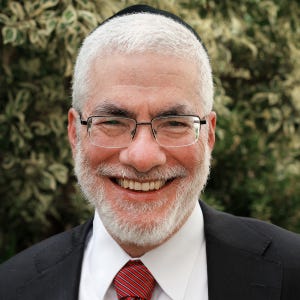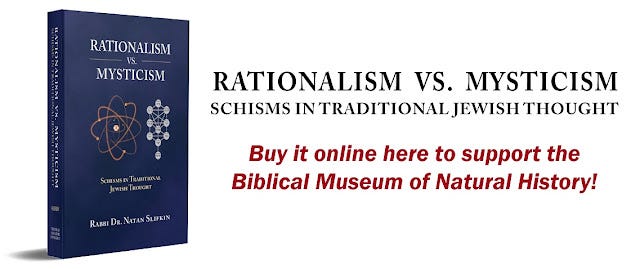The Angst of Jonathan Rosenblum

Jonathan Rosenblum has penned a truly remarkable article in Mishpacha magazine. But first, some background.
It must be close to twenty-five years ago that I developed a relationship with Jonathan Rosenblum. Nosson Slifkin was a young, very idealistic yeshiva student, passionate about charedi ideology (which he believed to be The Right Derech) and greatly pained by the animosity towards the charedi community. I wrote an essay, explaining why nobody should resent the charedim for not serving in the IDF, which was well-received by many and which I later published in my unfortunate book of charedi ideology on the parasha, Second Focus. I decided to send it to Jonathan Rosenblum, the preeminent ambassador for the charedi world that I greatly respected, and we became friends. Over the following several years I enjoyed much hospitality at his home, both before and after I got married.
It was probably around the year 2000 that I started to have some misgivings about various aspects of the charedi community. I don't remember what they were, but I remember expressing this in a conversation to Jonathan. He agreed, but said that since the charedi community produced such towering figures as Rav Moshe Shapiro and Rav Aharon Feldman, it is vindicated.
And then, a few years later, my books were banned.
Like many people, Jonathan was devastated. As he put it to me, he woke up one day to find that his rebbe of many years considered his views heretical (for he too believed that the world is millions of years old, and did not believe in spontaneous generation). He told me at the time that he cancelled a lecture tour because he just didn't have the stomach to defend the charedi world. He went to great effort, behind the scenes, to try to reduce the harm that was being done, including urging Rav Aharon Feldman not to write his notorious article defending the ban.
Unfortunately, our goals were not precisely aligned. Rosenblum's priority was to stop the harm being done to the charedi community, not the harm being done to Nosson Slifkin or his books' readers. He joined with certain members of the Kamenetzky family in urging me to print a partial apology in the Yated, as a tactical move in order to calm things down. Rosenblum was very angry with me for instead listening to my own rabbinic mentors, who advised me that it was not worth compromising my honor and integrity for what would probably be a futile endeavor anyway.
But what really caused me tremendous pain was when certain of my opponents gleefully shared a recording of a lecture that Rosenblum gave at the Discovery Institute (not Aish HaTorah's Discovery). He chose to take the Gedolim's side, explaining that the problem was that I refuse to listen to anyone (by which he was apparently referring to himself and the Kamenetzky family), and that I was arrogantly considering myself on a par with the Rambam (which was, of course, utterly false; the problem was that I was presenting Rambam's position). He also falsely claimed that the Gedolim were objecting to the "tone" of my books rather than the underlying positions, and that I had "easily and casually dispensed with" Chazal's supernatural knowledge of science, which he insisted they possessed.
I was utterly devastated by this betrayal of the truth and of our friendship. It was one of the worst moments of that entire horrible period. I sent Jonathan a letter, protesting this slander, which he didn't respond to. And that ended our relationship. Nevertheless, despite his publicly closing ranks with the Gedolim, Rosenblum had clearly been very, very disturbed by what had happened.
Over the years, Rosenblum's disillusionment with the charedi community became ever more apparent. He wrote a number of articles for Mishpacha magazine in which he put forth some incredible critiques of the charedi community. First he nailed a key problem with the charedi community that its insularism came at the cost of "a diminished Klal Yisrael consciousness." Then he compared mass kollel to toxic chemotherapy. Next, he called for wholesale reform in the charedi way of life vis-a-vis Torah study. In another article, he plainly stated that we all desperately need charedim to get academic education and professional employment. He reiterated the need for far-reaching change in another article, which he concluded by stating that the charedi community fortunately has Gedolim who are up to the challenge of making such reforms; I'm sure I cannot be the only one who felt that this obvious lip-service bordered on sarcasm.
Not surprisingly, the charedi response to Covid has been particularly gut-wrenching for Rosenblum. In his latest article, Whatever Happened To Kiddush Hashem?, he expresses the great angst in which he now finds himself:
"It has been a very bad week for me. Over 40 years ago, my new wife and I joined the chareidi world. For 30 years, I have been a sometime spokesperson for that community, at least to the outside world. And suddenly, I find myself wondering whether I understand anything about the community, or at least a major swath of it, and its mindset."
The cause for his angst is, as he proceeds to describe, the utter contempt for the rest of society that certain elements of the charedi community have shown with their disregard for Covid restrictions and their hostility to those who attempt to impose them. He describes a range of phenomena, from the attacks on the police committed by a violent minority, to the all-too-familiar stories of charedim on airlines completely disregarding the instructions of the flight crew, this time with regard to refusing to wear masks.
Indeed, the generally appalling charedi response to Covid has been the cause of a tremendous crisis of identity for many people in the charedi world. I've received several communications from people in the heart of the charedi world who tell of their utter shock and dismay at the things that they see in their community, and how they are questioning their place in it. But especially telling is how Rosenblum says he dealt with his angst:
My only solace came when I mentioned how disoriented I'm feeling to my rav, a major talmid chacham and respected dayan, and he expressed the same feelings, despite having been raised from birth in the heart of the Israeli chareidi world.
How much of a comfort it is to see that major figures in the charedi world also realize that their society is broken? Sooner or later, will one of them be brave enough to publicly observe that the Emperor has no clothes?
Rosenbum sees the same fundamental and dangerous problems with charedi society that the rest of us see. He says that he wonders whether he understands anything about the community and its mindset; but one cannot but wonder if he problem is that he understands it all too well. I don't know whether he stays in the charedi world because he is too invested in it (especially with children and grandchildren in that world, it's not easy to leave), or because he still feels that, despite all its structural, deep, far-reaching problems, it is nevertheless the best place to be. Either way, it's a good thing that he stayed in it, because he is thereby able to write about such things in Mishpacha magazine.
If you'd like to subscribe to this blog via email, use the form on the right of the page, or send me an email and I will add you.
My new book Rationalism vs. Mysticism is now available for purchase online, with international shipping available. If you're in Israel, pickup can be arranged from several locations around the country. Order online and let the office know if you want a list of pickup locations or if you prefer to have it mailed to you.



